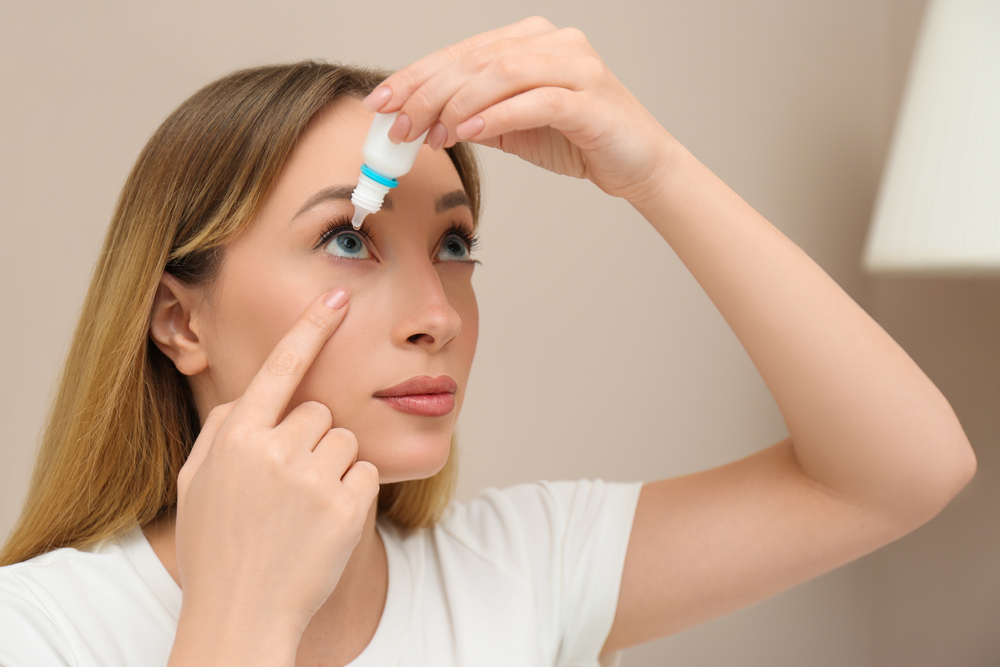
Dry eye is a condition that affects millions of people worldwide. It occurs when your eyes do not produce enough tears or when the tears evaporate too quickly. This can lead to discomfort, irritation, and even vision problems. If you wear contact lenses, dry eye can have a significant impact on your overall comfort and the quality of your vision.
When your eyes are dry, the surface of the contact lens can become irritated and cause discomfort. The lack of moisture can also lead to blurred vision and difficulty focusing. Additionally, the contact lens itself can absorb the tears that are meant to keep your eyes lubricated, exacerbating the dryness. This can make wearing contact lenses a frustrating experience for those with dry eye.
Causes and Risk Factors of Dry Eye
There are several factors that can contribute to the development of dry eye. Some of the most common causes include aging, hormonal changes, certain medications, and environmental factors such as dry climates or exposure to air conditioning or heating. Certain medical conditions, such as diabetes and autoimmune disorders, can also increase your risk of developing dry eye.
It's important to note that contact lens wear itself can also contribute to dry eye. The contact lens can disrupt the normal tear film on the surface of the eye, leading to increased evaporation and dryness. Additionally, some contact lens materials may be more prone to causing dry eye than others.
Symptoms of Dry Eye
Recognizing the symptoms of dry eye is crucial for managing the condition effectively. Some common signs of dry eye include:
- Dryness or grittiness in the eyes
- Itching or burning sensation
- Redness or inflammation
- Excessive tearing
- Blurred vision or sensitivity to light
If you experience any of these symptoms, it's essential to consult an optometrist for a proper diagnosis and to discuss potential treatment options.
Choosing the Right Contact Lenses for Dry Eye
If you have dry eye and wear contact lenses, choosing the right type of contact lens can make a significant difference in your comfort and overall eye health. Some strategies to consider when selecting contact lenses for dry eye include:
- Opt for contact lenses made from materials that retain moisture well, such as silicone hydrogel lenses. These lenses allow for better oxygen permeability and can help reduce dryness.
- Consider daily disposable contact lenses. These lenses are discarded after each use, which eliminates the need for cleaning and disinfecting solutions that can further irritate dry eyes.
- Explore contact lenses specifically designed for dry eye. Some contact lens manufacturers offer lenses with built-in moisture retention technology to help alleviate dryness and discomfort.
It's crucial to consult with your optometrist to determine the best contact lens option for your specific needs and symptoms.
Tips for Maintaining Good Eye Health While Wearing Contact Lenses
If you have dry eye and wear contact lenses, there are several tips you can follow to maintain good eye health and minimize discomfort:
- Use lubricating eye drops specifically formulated for contact lens wearers. These drops can help keep your eyes moisturized and reduce dryness.
- Follow proper hygiene and lens care practices. Clean your contact lenses as instructed by your optometrist and replace them according to the recommended schedule.
- Avoid wearing contact lenses for extended periods. Give your eyes regular breaks by wearing glasses instead of lenses when possible.
- Protect your eyes from environmental factors that can exacerbate dryness. Use a humidifier in dry environments and wear sunglasses to shield your eyes from harsh winds or sunlight.
- Stay hydrated by drinking plenty of water throughout the day. Proper hydration can help maintain moisture levels in your eyes.
By following these tips, you can help manage dry eye symptoms and make wearing contact lenses a more comfortable experience.
Consulting an Optometrist for Dry Eye and Contact Lens Concerns
If you have dry eye and wear contact lenses, it's crucial to consult with an optometrist regularly. They can assess your eye health, provide personalized advice, and recommend appropriate treatment options. Your optometrist may suggest additional strategies to manage your dry eye, such as prescription eye drops or minor lifestyle adjustments.
Regular check-ups with an optometrist are especially important if you experience persistent discomfort or changes in your vision while wearing contact lenses. They can help identify any underlying issues and work with you to find the best solutions for your specific needs.
Schedule Your Consultation with Cortez Vision Eye Clinic Today
By understanding the causes and risk factors of dry eye, recognizing its symptoms, and choosing the right contact lenses, you can alleviate discomfort and maintain good eye health. By taking proactive steps and seeking professional guidance, you can enjoy the benefits of wearing contact lenses while minimizing the impact of dry eye on your overall comfort and vision.
Don't let dry eye hinder your contact lens experience. Schedule a consultation with our optometrist to find the best solutions for your needs, visit Cortez Vision Eye Clinic at our office in Cortez, Colorado, or call (970) 565-2020 to book an appointment today.










